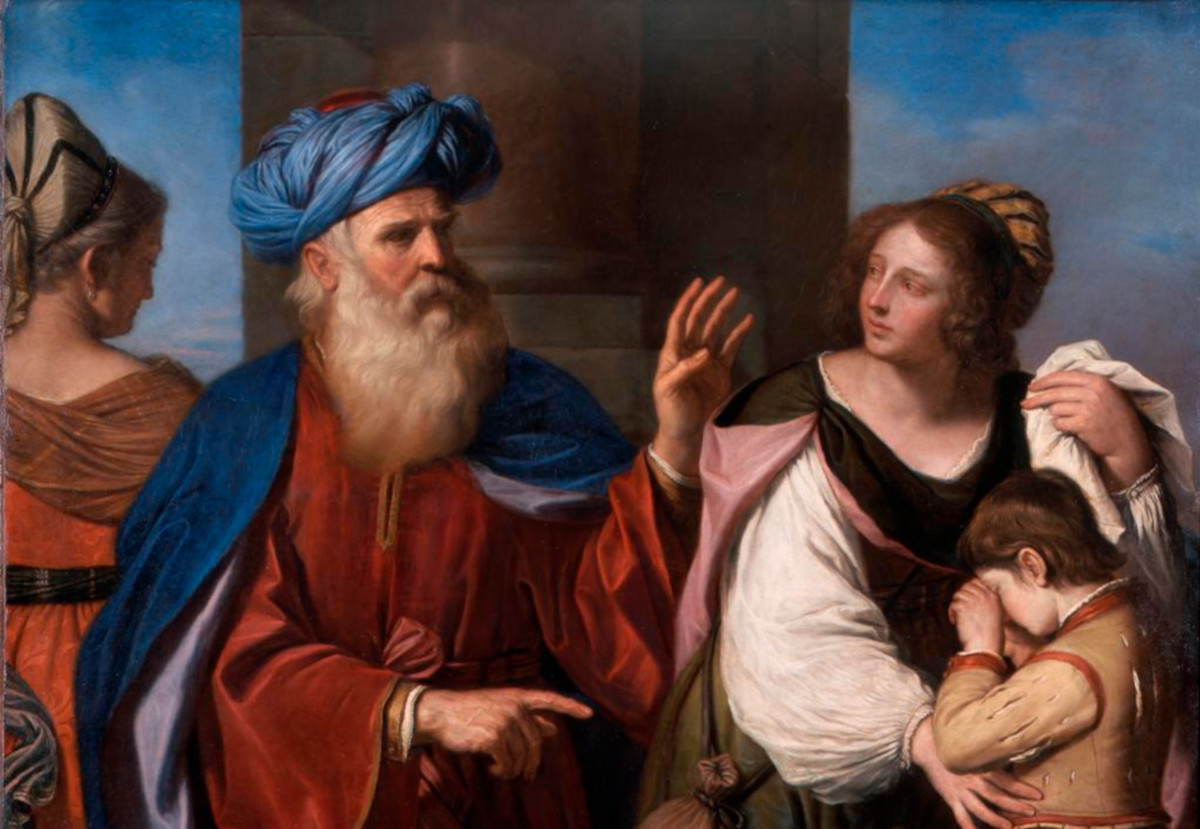Most modern readers of the Hagar-Sarai-Abram novella would see Hagar as the victim of the story. She is used by two people who don’t even bother to refer to her by name, taken as a concubine to provide an heir to Abram (or, perhaps, to fulfil Sarai’s maternal instincts, see 16:2), only to have her son rejected in favour of an heir provided by Abram's wife. The injustice perpetrated against her in life is then compounded and prolonged by the violation of her memory by post-biblical theology, which has portrayed her as symbolic of the unredeemed, the mother of the earthly city, finding her identity only in relation to the one who perpetrates violence against her – Sarai, who becomes Sarah, the mother of God’s chosen, and matriarch of the City of God.
 Indeed, there is truth in this reading: the text emphasises Hagar not only as foreign and enslaved, but as Egyptian, from the very nation that will ultimately enslave God’s people, the nation from which the Lord will liberate his elect by intervening in human history, as narrated in the Book of Exodus. The enmity between Sarai and Hagar, and Hagar’s cursing of Sarai, is thus paradigmatic of the future relationship between the descendent of Sarai and the descendents of Hagar. Hagar is not merely an outsider; she embodies sheer otherness. Perhaps it is for this reason that the narrative places Hagar – who lived on the margins of society – at Shur (16:7), a town on the border with Egypt, the homeland toward which she was heading, but – like Moses after her – she would never enter her homeland (16:9), settling instead in the wilderness of Paran (21:14-21).
Indeed, there is truth in this reading: the text emphasises Hagar not only as foreign and enslaved, but as Egyptian, from the very nation that will ultimately enslave God’s people, the nation from which the Lord will liberate his elect by intervening in human history, as narrated in the Book of Exodus. The enmity between Sarai and Hagar, and Hagar’s cursing of Sarai, is thus paradigmatic of the future relationship between the descendent of Sarai and the descendents of Hagar. Hagar is not merely an outsider; she embodies sheer otherness. Perhaps it is for this reason that the narrative places Hagar – who lived on the margins of society – at Shur (16:7), a town on the border with Egypt, the homeland toward which she was heading, but – like Moses after her – she would never enter her homeland (16:9), settling instead in the wilderness of Paran (21:14-21).
Hagar doesn’t easily fit into the role of a despised, rejected, passive victim, however. Despite Hagar-Egypt being apparently antithetical to Sarah-Israel, Abram and the Israelites are not able to resist entirely the seeming allure of their antithesis. There is something mysterious about Hagar and the Egyptians, who are elsewhere in the Hebrew scriptures associated with fertility and wisdom (1 Kgs 4:30). Indeed, not only does the angel of the Lord appear to Hagar – as she herself remarks, she has “really seen God and remained alive after seeing him” – but it is also Hagar who is blessed with fertility, whilst the Lord has closed the womb of Sarai (16:2). Hagar is the first woman to receive an annunciation from the Lord, and the only person in the Pentateuch who dares to give God a name, calling him ‘El Roi’ (‘the God who sees’), only to be corrected by the Lord, who reveals himself as ‘El Shaddai’ (‘God Almighty’) in 17:1. Indeed, Hagar alone cannot be blamed for risking the ethnic purity of God’s chosen people, for Abram himself allowed Sarai to enter the Harem of Pharoah (12:9).
Perhaps what is most interesting in the Sarai-Abram-Hagar triangle is the apparent weakness and passivity of Abram. Hagar is not straightforwardly the victim of a patriarchal oppression, but of a scheme cooked up by Sarai, to which Abram acquiesces, and the power struggle is fought between Sarai and Hagar, with Abram standing as an almost silent participant in the background. Certainly, Abram was a willing participant, and is thus guilty of participating in the abuse of Hagar, but the text does not portray him as a protagonist. Perhaps Sarai’s change of heart – cooking up the scheme and then seeming to be horrified when it works out – is because she suspected that the reason for the lack of children lay with Abram, rather than with herself. Whilst this would explain her incredulous laughter – when she remarks in 18:12, “After I have grown old, and my husband is old, shall I have pleasure?” – this suggestion strays into the realms of speculation, beyond the boundaries of the text, which leaves us with an ambiguous portrayal of Hagar as a victim who nonetheless enjoys a curious degree of divine favour, and a surprisingly powerful prominence within the Genesis narrative.
No comments:
Post a Comment